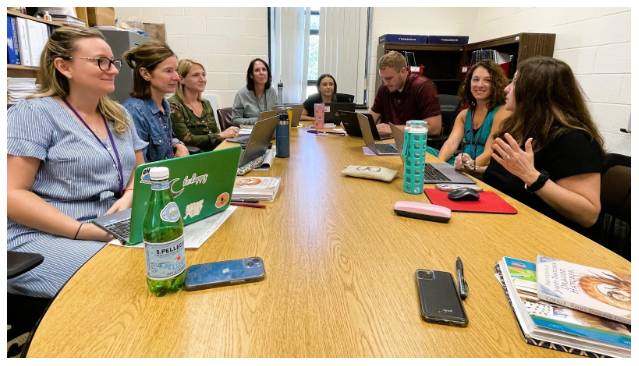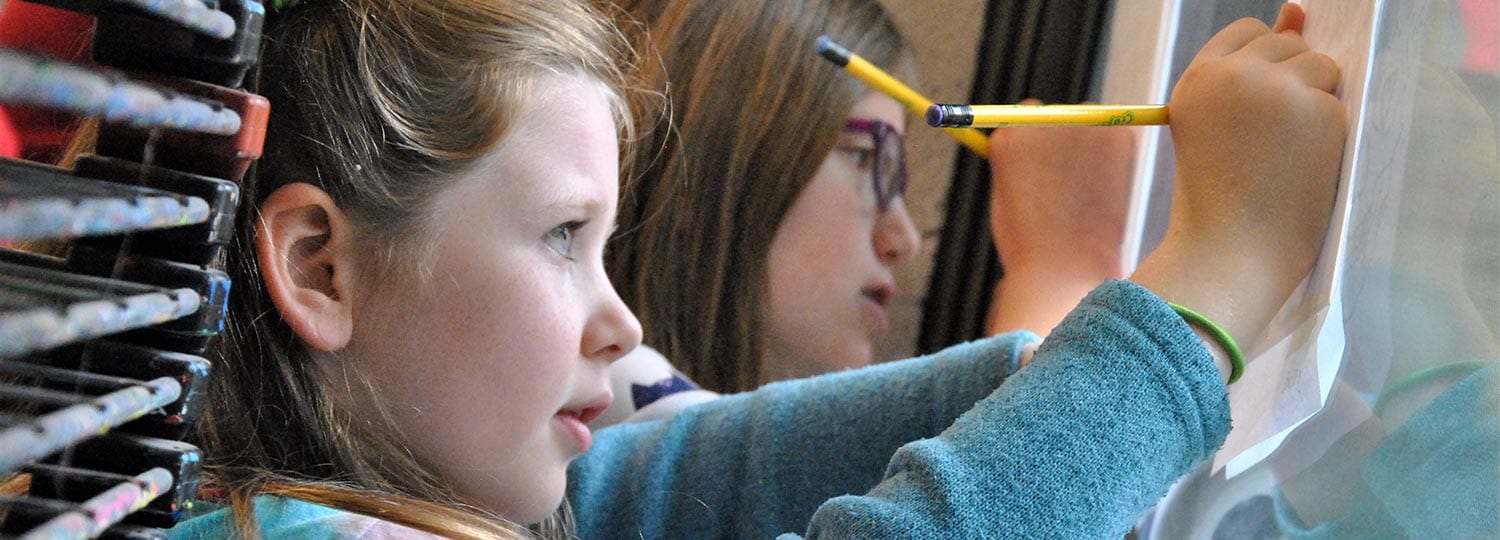WVCSD weaves literacy thread throughout academic tapestry
Just as our students have returned to classes, so have our teachers, with all-new professional development sessions this September!
“Our teachers are the foundation of our educational system, and their growth as lifelong learners is paramount,” said Assistant Superintendent for Curriculum and Instruction, Meghan McGourty. “Continued professional development is not just a requirement, but an investment in the future of our students.”

Last week, district literacy specialist Alisa Kadus and district literary consultant Patty Vitale Reilly worked with first, second and third-grade teachers at Sanfordville, as part of the district’s ongoing roll out of both innovative literacy and teacher development programs.
“Warwick schools believe strongly in professional development, so every year, there is continual reflection on – and refining of – literacy instruction here,” said Ms. Vitale Reilly. “Literacy really is the foundation for all instruction, especially at the elementary level.”
First and second-grade teachers learned ways to incorporate literacy techniques such as shared reading and interactive read-alouds into social studies and science lessons to put an emphasis on literacy and help make cross-curricular connections throughout the students’ day. That thread of literacy helps to deepen overall comprehension across all subjects.
“We know that students learn best when multiple pieces of a puzzle fit together in their minds,” said Ms. Kadus. “So one of the reasons we try to develop a confluence between disciplines, is because it means that as students are learning throughout the day, they are really able to put pockets of learning together in a cohesive way.”
Ms. Kadus also explained that the more we understand that fundamental skills like reading, writing, speaking, and being a good listener and observer are required for all disciplines, the easier it is for us to see the connections between subject matter, rather than the differences.
“It’s a style of interdisciplinary education that frees a teacher up to do more things, because it doesn’t require them to be as regimented in their scheduling,” she said. “It’s an enhanced learning for the learner, and a more efficient way for teachers to impart what they need to teach students.”
Sessions with third grade teachers focused on the first unit of study and the role that instructional read-alouds play in developing comprehension skills.
“We’re helping (these teachers) map out a new classroom text that complements their professional literacy resource,” said Ms. Vitale. “So, we’re looking at how to pace the reading of that text, how to prompt readers for enhanced skill development, and how to utilize the book as a teaching tool in their mini lessons.”
This model is quite a departure from decades ago, when (perhaps some parents may remember) school days were partitioned into subject periods, with little, if any, discussion about how the topics being taught were interrelated. To complement this modern approach to learning, literacy experts and teachers alike, agree that home support is as important as ever, and that the best thing a caregiver can do to help develop a child’s fundamental literacy skills at home is to read to them. To encourage that type of support, district teachers are provided with tools and tips for creating at-home activities that will engage families and keep the learning going outside the classroom.
“Always! First and foremost; all the way from ‘K’ through four,” said Ms. Kadus. “Reading and writing with your child; those are huge pieces.”
“Read to your kids! Even after they can read for themselves. Just do what you can to support reading,” said Ms. Vitale Reilly. “A love of reading and books in your home, in any small way, actually goes a very long, long way.”
In all departments and grades, the district’s professional development program will continue all year.
“In Warwick, we emphasize the importance of empowering our teachers with ongoing learning opportunities. This continuous growth and development enhances their teaching skills and inspires a culture of curiosity and adaptability in our schools,” said Ms. McGourty. “Together, we ensure that every student benefits from the evolving expertise of our dedicated educators.”
To learn a little more about how literacy is woven into the overall fabric of academic programs, please take a look at this story and video from last year, about our WVCSD Elementary Program.

